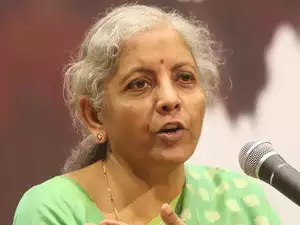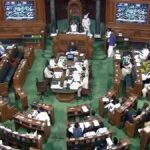To widen the tax base, FM Nirmala Sitharaman has urged the Income-Tax Department to prioritise transparency, objectivity, and taxpayer-friendliness. She emphasised the significance of technology in increasing tax revenue without increasing tax rates. The department’s net direct tax collections increased by 17.67% year-over-year in FY23, aided by technology-driven compliance. Sitharaman also mentioned modifications to the income-tax laws to assist MSMEs and cooperatives. The government’s goal is to make taxes and taxation more user-friendly and to develop India by 2047.
On Monday, Union Finance Minister Nirmala Sitharaman urged the Income-Tax Department to follow three broad principles – transparency, objectivity, and taxpayer-friendliness – to broaden the tax base. She also invoked Prime Minister Narendra Modi’s dictum to use technology to increase tax revenues without increasing tax rates or resorting to overreach.
At the 164th Income Tax Day, she stated that pre-filled data, instant generation of the permanent account number (PAN), the tax-payers charter, faster refunds, and the recently implemented faceless system of tax administration have not only made tax assessors more comfortable, but have also aided in increasing tax revenue without increasing tax rates. She stated, “Therefore, I refer to the Prime Minister’s statement that if we don’t invest in technology, the three points — transparency, objectivity, and being taxpayer-friendly — may never be achieved.”
Nitin Gupta, chairman of the Central Board of Direct Taxes (CBDT), stated earlier at the event that technology-driven compliance increased net direct tax collections by 17.67% year-over-year to 16.61 lakh crore in FY23, exceeding both the Budget and the Revised estimates. Over 50% of the 40 million returns filed for FY23 have been processed, and 8 million of them have been issued during the current income-tax return (ITR) filing season, he stated, attributable to the department’s use of technology.
She stated that the income tax laws have been modified to encourage micro, small, and medium-sized enterprises (MSMEs), startups, and cooperatives. According to the amended law, large companies cannot claim tax benefits unless they truly pay their MSME suppliers’ dues.
She stated that the department of income tax no longer takes a “adversarial” stance. “We are treating tax payers as part of the nation’s wealth creators,” she said, adding that their contributions to the nation’s development are immense. She stated that the shift in strategy has also aided in increasing tax revenues without increasing tax rates. Under the new system, the government effectively exempted income up to 7,27,000 from income tax.
Sitharaman stated that the government is continually endeavouring to “make tax and taxation significantly more people-friendly” by maintaining low tax rates, promoting transparency, and introducing people-friendly technologies. Previously, individuals (tax assessors) lived in constant dread that the government might reopen their 10-year-old tax records. On the PM’s orders, not only was this period shortened to six years, but reopening of cases older than three years was also made contingent. According to the amended law, only understated or non-filers files for income over 50 crore could be reopened for cases four to six years old, and then only with the explicit permission of a senior tax official.
She stated there are approximately one million such cases, and the department of income tax will process them by March 2024. After that, the backlog will be eliminated and the process will become “more predictable,” she said, adding that 55,000 “one-time cases” that emerged as a result of the apex court’s decision had already been processed and concluded by May 2023. “Therefore, today there are no notices,” she said, adding that individuals must pay their dues because “system gaming no longer occurs.”
Also read this:Three bills introduced in Lok Sabha
She urged tax officials to sustain the momentum with the three aforementioned principles in order to achieve Prime Minister Narendra Modi’s goal of developing India by 2047. She requested that the tax agents’ field formation shift from an investigative to an inclusive mode, which will result in a greater number of willing taxpayers.





